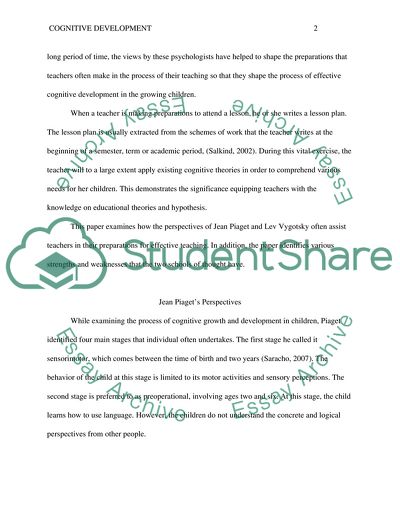Cite this document
(“How should the cognitive development perspectives of both Jean Piaget Essay”, n.d.)
Retrieved from https://studentshare.org/education/1678625-how-should-the-cognitive-development-perspectives-of-both-jean-piaget-and-lev-vygotsky-be-considered-when-a-teacher-will-use-them-in-hisher-preparation-for-teaching-discuss-in-terms-of-the-strengths-and-weaknesses-of-those-two-theorists-perspectives
Retrieved from https://studentshare.org/education/1678625-how-should-the-cognitive-development-perspectives-of-both-jean-piaget-and-lev-vygotsky-be-considered-when-a-teacher-will-use-them-in-hisher-preparation-for-teaching-discuss-in-terms-of-the-strengths-and-weaknesses-of-those-two-theorists-perspectives
(How Should the Cognitive Development Perspectives of Both Jean Piaget Essay)
https://studentshare.org/education/1678625-how-should-the-cognitive-development-perspectives-of-both-jean-piaget-and-lev-vygotsky-be-considered-when-a-teacher-will-use-them-in-hisher-preparation-for-teaching-discuss-in-terms-of-the-strengths-and-weaknesses-of-those-two-theorists-perspectives.
https://studentshare.org/education/1678625-how-should-the-cognitive-development-perspectives-of-both-jean-piaget-and-lev-vygotsky-be-considered-when-a-teacher-will-use-them-in-hisher-preparation-for-teaching-discuss-in-terms-of-the-strengths-and-weaknesses-of-those-two-theorists-perspectives.
“How Should the Cognitive Development Perspectives of Both Jean Piaget Essay”, n.d. https://studentshare.org/education/1678625-how-should-the-cognitive-development-perspectives-of-both-jean-piaget-and-lev-vygotsky-be-considered-when-a-teacher-will-use-them-in-hisher-preparation-for-teaching-discuss-in-terms-of-the-strengths-and-weaknesses-of-those-two-theorists-perspectives.


